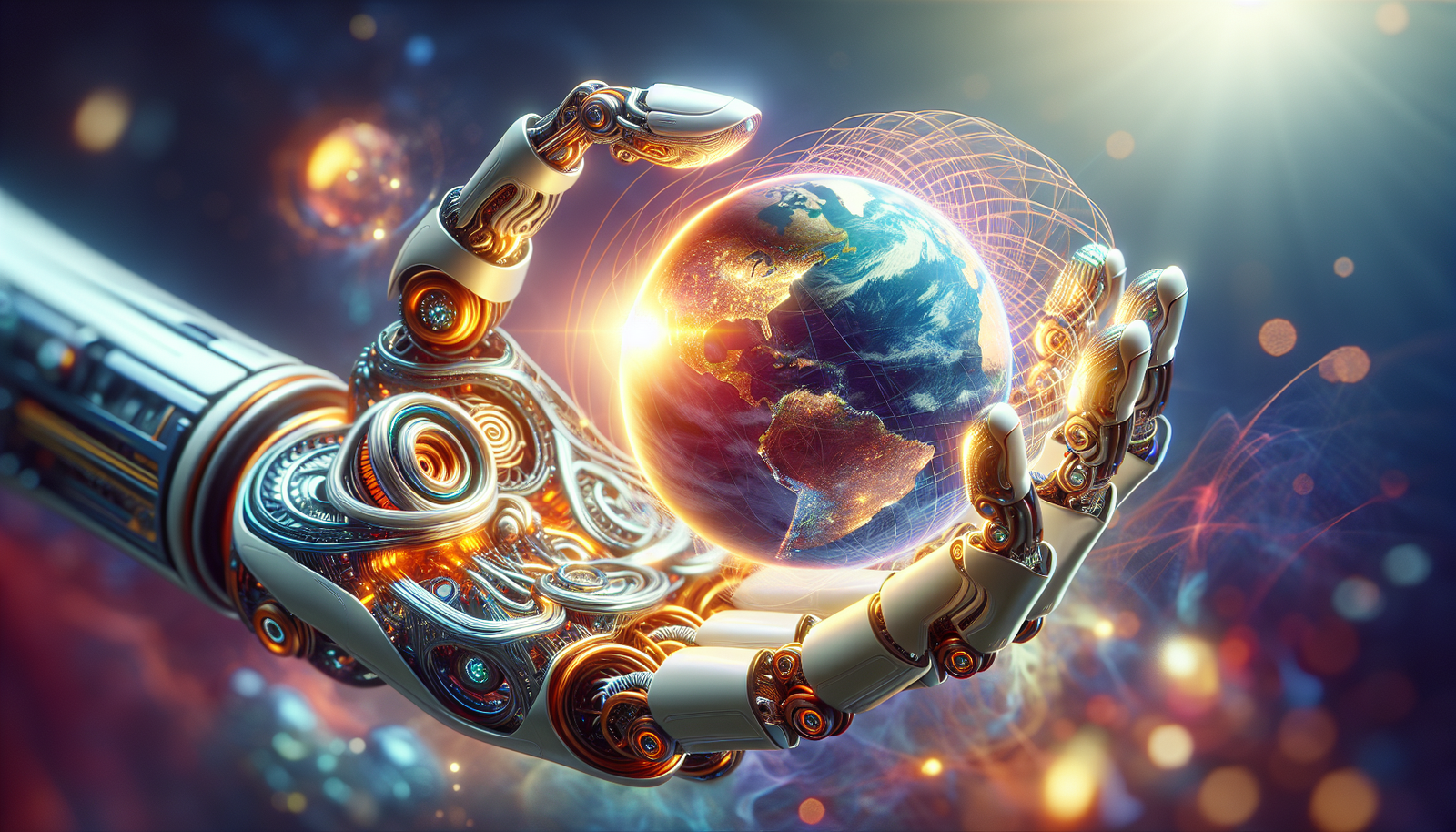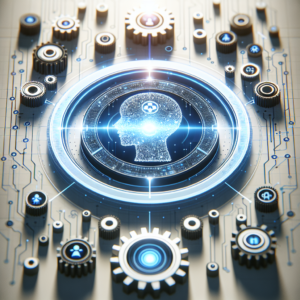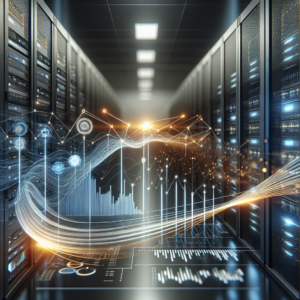What role do you think Artificial Intelligence (AI) plays in our everyday lives? It’s fascinating to consider how this technology has woven itself into the fabric of modern society, influencing various aspects of our daily routines, industries, and even our thinking processes. I want to share my reflections on the impact of AI on society, covering its applications, benefits, challenges, and the ethical considerations we face.
The Evolution of Artificial Intelligence
Artificial Intelligence has come a long way since its inception. Initially conceptualized in the 1950s, AI was mainly the domain of computer scientists and researchers. Today, it’s part of our everyday experiences, from the smartphones in our pockets to the algorithms that suggest our next favorite movie or song. I find it remarkable how quickly things have progressed.
Early Beginnings
The term “Artificial Intelligence” was first coined by John McCarthy at the Dartmouth Conference in 1956. Back then, the focus was primarily on basic problem-solving and symbolic methods. I resonate with the idea that even in those early stages, people were captivated by the potential of machines to think and learn.
Milestones in AI Development
In the decades that followed, significant milestones marked AI’s growth. Consider the development of expert systems in the 1980s, which simulated the decision-making abilities of a human expert. I remember hearing about these systems and found it mind-blowing that a machine could replicate such complex human thinking.
Then came machine learning in the 1990s, which allowed AI systems to improve their performance over time through experience. Today, with deep learning and neural networks, the complexity and capabilities of AI have expanded tremendously. I can’t help but feel excited about the possibilities.
AI in Everyday Life
AI isn’t just a buzzword; it’s actively shaping how I live my life. From assistance in household tasks to advancements in healthcare, the technology infiltrates various sectors, often without our conscious awareness.
Smart Devices
I often find myself relying on smart devices, be it my voice-activated assistant or smart thermostats that learn my preferences. These devices make life more convenient and help me save time. For instance, when I walk into my home, my smart assistant greets me and adjusts the lighting and temperature to my liking. It’s almost like having a little helper!
Social Media Algorithms
Social media platforms utilize AI algorithms to curate the content that appears in my feed. I appreciate how these algorithms can introduce me to content that genuinely interests me. However, I’ve also noticed that these same algorithms can create echo chambers, reinforcing my existing beliefs without introducing diverse perspectives.
AI in Entertainment
AI in the entertainment industry has transformed how I consume media. Streaming services analyze my viewing habits to recommend shows and movies. While I enjoy these personalized suggestions, I sometimes wonder if they limit my exposure to content outside my usual preferences.
Retail and E-commerce
In shopping, AI technologies enhance my experience through personalized recommendations based on my browsing history. I often see these algorithms in action when I shop online, receiving tailored suggestions that make finding the right product easier. It’s both convenient and a bit uncanny when I think about how accurately they can predict what I might like.
The Transformative Power of AI in Industries
Beyond personal use, AI has a transformative impact on various industries, redefining productivity and efficiency.
Healthcare
AI in healthcare is groundbreaking. Machine learning models can analyze medical data to help doctors with diagnostics. I feel comforted knowing that AI can assist in identifying diseases earlier than traditional methods. Imagine the potential for improved patient outcomes due to quicker interventions!
Transportation
The way AI is revolutionizing transportation is particularly intriguing. Self-driving cars are on the horizon, with companies testing autonomous vehicles. I often think about the implications of this technology: increased safety, reduced traffic congestion, and the potential for greater accessibility for those unable to drive.
Manufacturing
In the manufacturing sector, AI facilitates automation and predictive maintenance. Factories utilize AI to streamline processes and reduce waste. I’ve read stories about how organizations implement these technologies to maximize efficiency and improve safety for their workers, which I find gloriously inspiring.
Financial Services
In finance, AI algorithms sift through vast datasets to identify trends and make predictions. I find it fascinating that this technology assists in fraud detection, helping to keep financial transactions secure and protecting consumers like me from potential threats.
Benefits of Artificial Intelligence
There’s no denying the numerous benefits AI brings to society. While I’m excited about technology’s advancements, I also believe it’s crucial to understand these benefits to appreciate the changes happening around us.
Increased Efficiency
AI systems can process information and perform tasks with remarkable speed. For example, automated customer service chatbots can handle inquiries at any time of day, ensuring that I receive support whenever I need it without long wait times.
Cost Reduction
Businesses that incorporate AI often see a reduction in operational costs. I think about how automated systems and AI-enhanced processes can lead to lower prices for consumers, benefiting everyone in the long run.
Innovation and New Opportunities
The presence of AI fosters innovation. I’ve seen startups emerging with unique AI-driven solutions across diverse fields. It excites me to think about how AI can inspire new career opportunities and even entirely new industries.
Improved Decision-Making
AI can offer insights derived from data analyses that would take humans much longer to compute. This capability helps organizations make more informed decisions, which benefits consumers like me as products and services continuously improve.
Challenges and Concerns of AI
Despite the numerous advantages, there are challenges and concerns that come with AI’s rapid development. I find it essential to approach these topics thoughtfully, as they impact our future.
Job Displacement
One of the significant concerns surrounding AI is job displacement. As machines take on tasks traditionally performed by humans, I can’t help but wonder about the future of work. While AI can create new opportunities, it may also render many jobs obsolete.
Privacy Issues
The collection of vast amounts of data by AI systems raises my concerns about privacy. With companies gathering information on my habits, preferences, and behaviors, I wonder where the line should be drawn and how organizations could use that information responsibly.
Ethical Considerations
The capabilities of AI bring ethical dilemmas to the forefront. I often think about the biases that can be inherent in AI algorithms, which may inadvertently perpetuate discrimination. Ensuring fairness in AI applications is a responsibility that we all share.
Security Risks
As technology advances, new security risks arise. I recognize that cybercriminals may use AI to develop sophisticated attacks. This reality reinforces the importance of maintaining robust cybersecurity measures, not just for organizations but for individuals as well.
The Future of AI in Society
Looking ahead, the future of AI is both exciting and uncertain. I see the potential for numerous advancements that could further enhance our quality of life.
Collaboration Between Humans and AI
One of the most promising paths I envision is collaboration between humans and AI. Instead of replacing us, AI can serve as an augmentation tool, enhancing our abilities and freeing us up to focus on more complex, creative tasks. I dream of a world where humans and AI coexist harmoniously, bringing out the best in each other.
Continued Innovations
I am hopeful that technological innovation will persist, leading to developments that can address societal issues. For me, the application of AI in fields like climate science, agriculture, and education represents an opportunity to tackle some of the world’s most pressing challenges.
Ethical AI Development
Moving forward, a focus on ethical AI development is necessary. I believe that as a society, we must engage in discussions about how we design, implement, and regulate AI systems. Ensuring transparency, accountability, and fairness will be crucial as we navigate this ever-evolving landscape.
Lifelong Learning in the Age of AI
As AI evolves, continuous learning will become more important for all of us. I anticipate that educational systems will need to adapt, teaching skills that complement AI rather than compete with it. I look forward to seeing how education will change to prepare me and future generations for a world where AI is prevalent.
Conclusion
Reflecting on the impact of Artificial Intelligence on modern society, I’m filled with a sense of wonder and responsibility. This technology influences virtually every aspect of our lives, and as we continue to unravel its potential, I believe it’s crucial for us to approach AI thoughtfully and responsibly. The opportunities for advancement are immense, but they come with challenges we must carefully consider. I feel optimistic about the potential for AI to enhance society, provided that we work together to navigate its complexities. The future, with AI by our side, could be more inspiring than we dare to dream.






